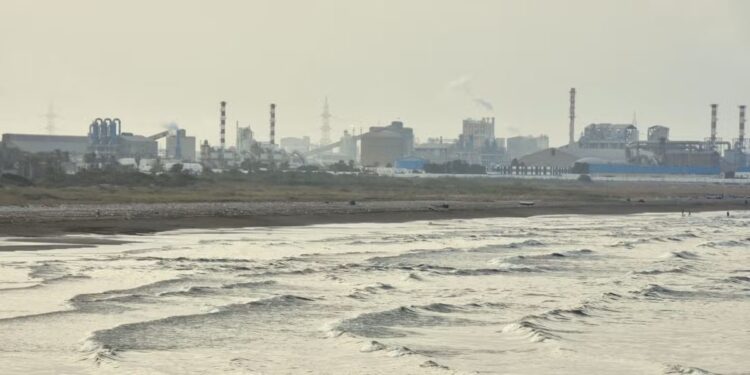The local council of the commune of Gabès-Sud has launched a firm call for the immediate suspension of the activities of the polluting chemical units of the Tunisian Chemical Group (GCT). In a press release published Monday October 13, local elected officials demand the rapid dismantling of the defective and obsolete equipment of the industrial complex, and denounce an environmental situation that has become “untenable”.
The members of the council also called for activating pending environmental projects, holding those responsible for repeated ecological attacks to account, and including the governorate of Gabès in a real approach to environmental justice and positive discrimination.
This reaction comes after new cases of asphyxiation reported on Tuesday among students and residents of Chott Essalem, following emissions of toxic gases from the GCT site.
Recurring incidents and growing fed up
Local elected officials have expressed their indignation and categorical rejection of the repetition of these incidents, which they no longer consider as simple accidents, but as real environmental crimes knowingly committed against the population and the ecosystem of Gabès.
These episodes of asphyxiation, which have become frequent in the region, have reignited the anger of residents and relaunched the debate on the responsibility of the Tunisian Chemical Group, accused for years of seriously degrading the quality of air and water in the south of the country.
Direct coordination with the Presidency of the Republic
On the other hand, the governor of Gabès, Radhouane Nsibi, chaired, on Tuesday, a consultation meeting with several national, regional and local elected officials, devoted to the worrying environmental situation in the region, following recent incidents linked to the GCT.
The governor stressed that the President of the Republic, Kaïs Saïed, is personally following the matter and insists on the need to deal with the crisis in a radical manner, while holding those who have failed in their duties responsible.
He recalled that a joint working group – formed on presidential instructions and composed of representatives of the Ministry of Industry, Mines and Energy as well as the Ministry of the Environment – has already visited the site to assess the situation and act impartially.








